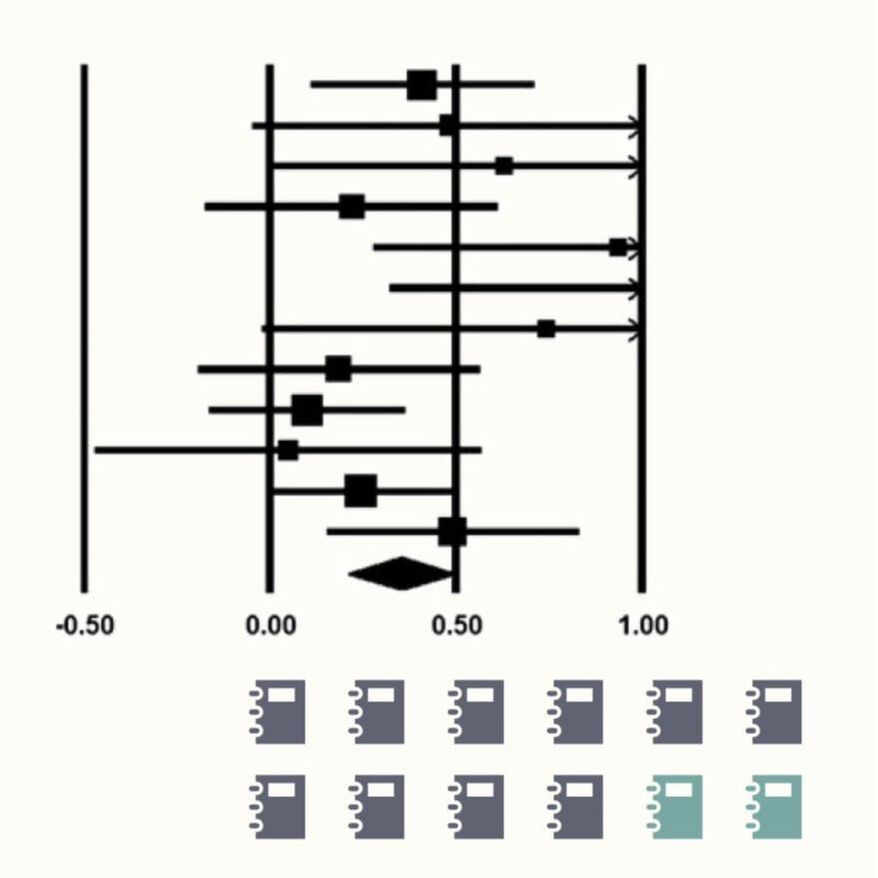A Human Operant Laboratory Gambling Analog
In Probability Discounting and Gambling: A Meta-Analysis, we identified 12 publications that reported gambling severity measured via clinical diagnosis, experiment, self-report) and probability discounting (tendency to choose a larger, less likely reward over a smaller, certain one).
|
Across 1685 people and 18 effect sizes, there was a relation between gambling and probability discounting. Problem gamblers were more likely to prefer risk).
Some of the results from individual studies were not statistically significant, but all of the effect sizes were positive. The correlation was small (Hedges' g = .36), but consistent. Problem gambling can be thought of as a bias for risk, but our results suggest there is there is more to it than that. |


